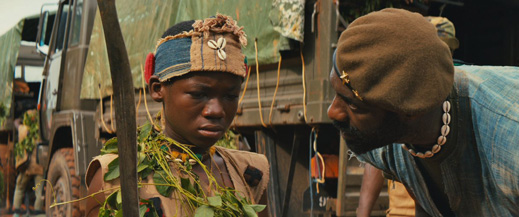|
|
They Shoot Oscar Prognosticators, Don't They?TIFF Part 3: The Danish Girl DazzlesBy J. Don BirnamSeptember 22, 2015
The Rest Oh, I guess is it somewhat burying the lede to mention that we also went to the world premiere of Roland Emmerich's Stonewall, attended by the disaster-movie director himself and the entire cast, including leading man Jeremy Irvine. Kudos to Emmerich for the effort of making a movie about this important landmark in LGBT history, but unfortunately the project simply does not work. The story really isn't even about the Stonewall Riots - it's more about the main character's struggles resulting out of his sexuality and the fact that he comes from a small town. But even the analysis of that story is superficial and unoriginal, and by the time the riots come, you feel like rioting against the movie itself. On the other hand, the interesting documentary He Named Me Malala has a greater than zero chance of finding awards buzz. It tells of the life of the eponymous humanitarian and her struggles for the education of young girls around the globe. The film is informative and moving, and it really shows a personal, youthful side of the larger-than-life character. The movie also features well-drawn scenes that recount the past, and an interesting exploration of the relationship between Malala and her father. It is not an earth-shattering movie by any means, but the subject matter is somewhat irresistible and may prove so to the Academy. Our final movie was the Emma Watson and Daniel Bruhl thriller Colonia. Like Stonewall, the movie is a fictionalized drama set against the backdrop of a true story, in this case, the military coup and dictatorship in Chile in 1973. And, like Stonewall, the dichotomy ultimately dooms the movie. As an action film, Colonia is entertaining and tense. But, supposedly set in a real life cult/colony condoned by the Chilean and German governments at that time, the movie feels simply too unbelievable. In some ways, it's a clear attempt to remake Argo - exaggerating events surrounding a real story, and it falls even flatter. With that, the solid 40th Toronto International Film Festival came to a close. But there is no rest for the weary, as the 53rd New York Film Festival starts on Saturday. So we will do this all over again over the next couple of weeks, as we preview Robert Zemeckis's The Walk, Steven Spielberg's Bridge of Spies, Carol, Brooklyn, and foreign language Oscar entries like Hungary's Son of Saul and Taiwan's The Assassin. Keep your eye on this space and as usual follow live updates on Twitter.
|

|
|
|

|
Thursday, October 31, 2024
© 2024 Box Office Prophets, a division of One Of Us, Inc.


